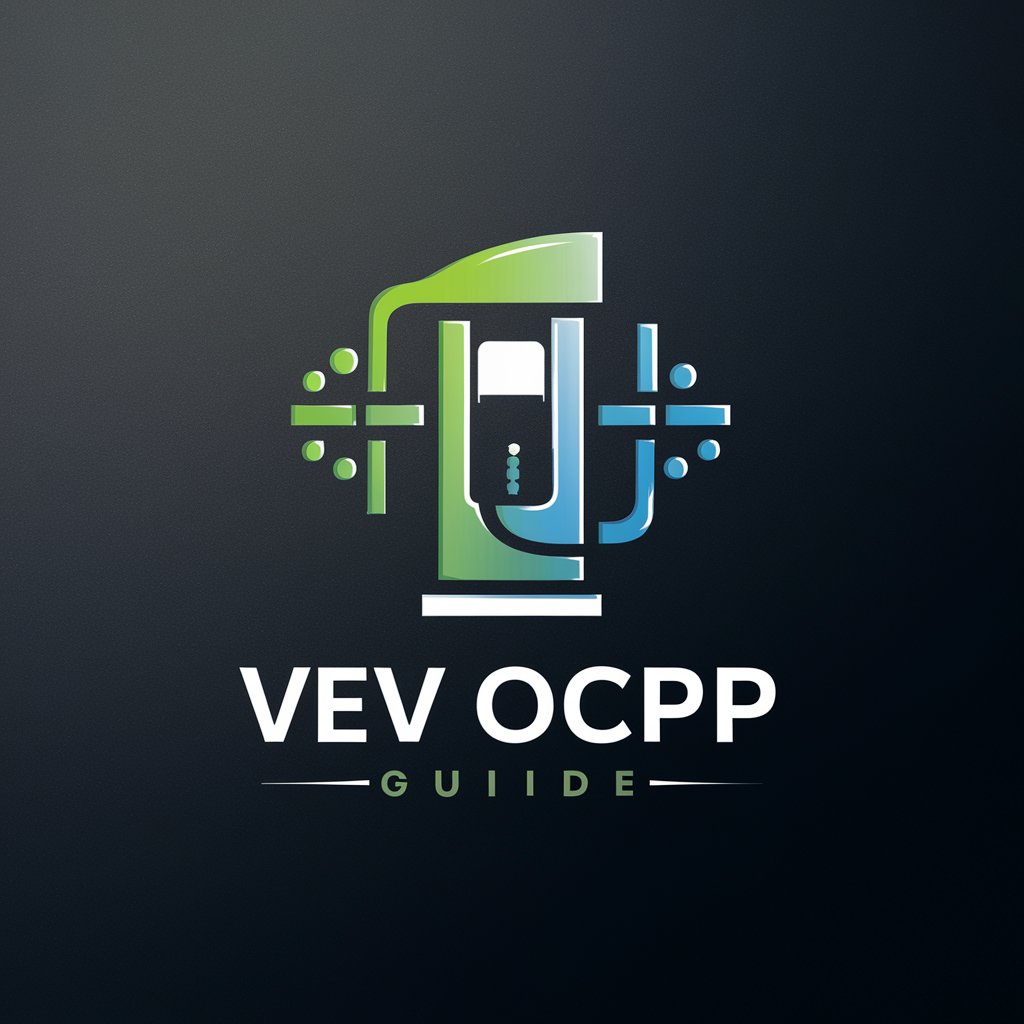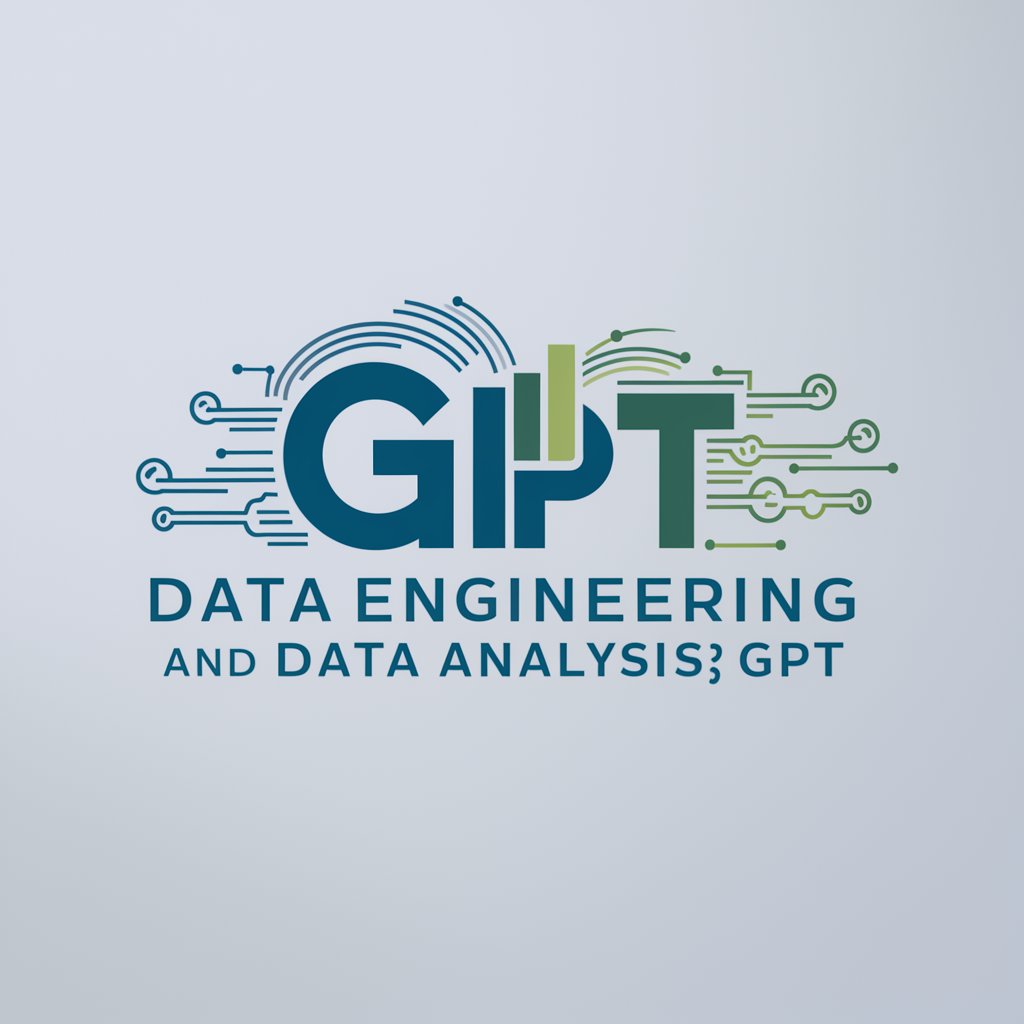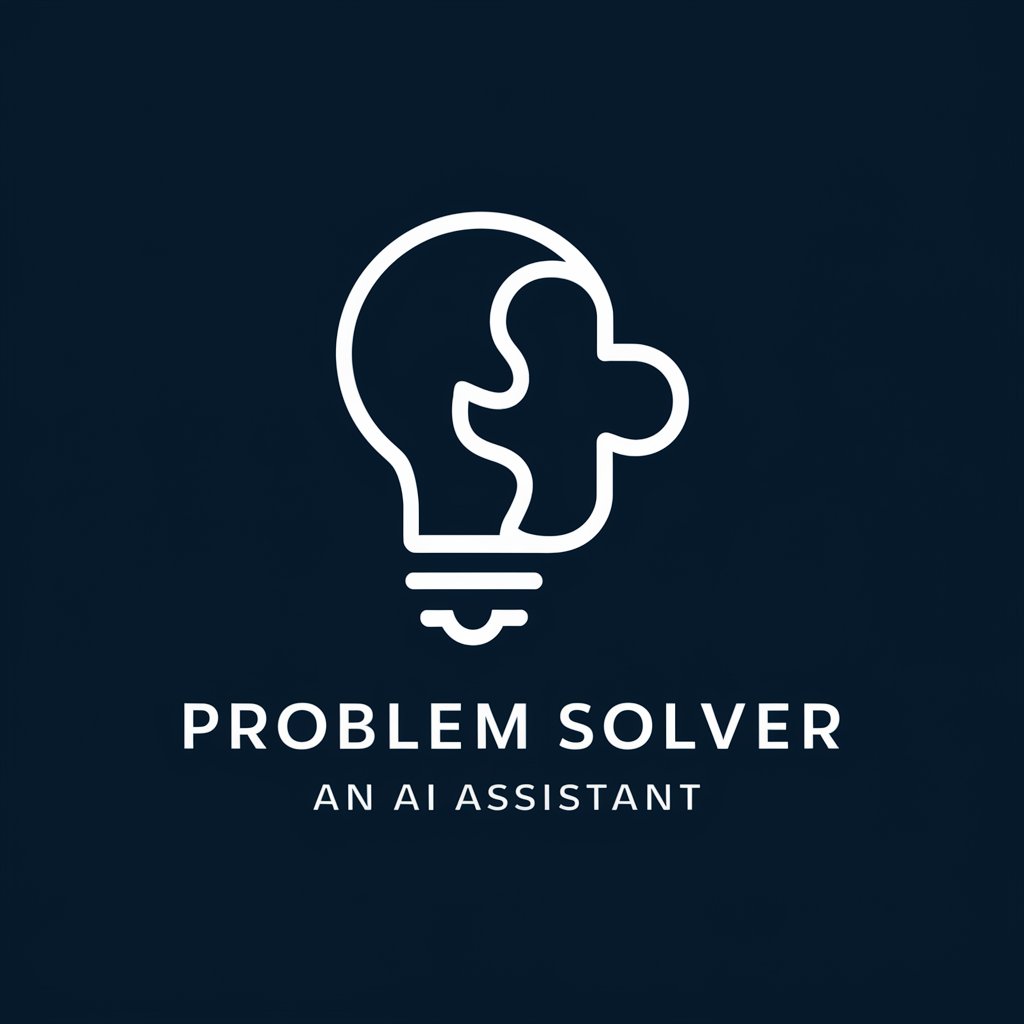
VEV OCPP Guide - EV Charging Protocol Guide

Welcome to VEV OCPP Guide, your expert in EV charging standards.
Empowering Smart EV Charging
Explain the differences between OCPP 1.6 and OCPP 2.0.1.
How does ISO 15118 enhance the EV charging experience?
What are the benefits of smart charging solutions for EV networks?
Describe the role of OCPP in the AFIR regulation by the European Commission.
Get Embed Code
VEV OCPP Guide Introduction
VEV OCPP Guide is designed to be a specialized resource in the realm of Electric Vehicle (EV) charging, focusing on the Open Charge Point Protocol (OCPP), particularly versions 1.6 and 2.0.1. As a knowledge hub, it integrates extensive details about smart charging solutions and the broader context of EV charging protocols, such as the ISO 15118 Plug and Charge standard. The purpose of the VEV OCPP Guide is to furnish users with precise and current data, insights into the application of these technologies, and support for implementation across charging infrastructures. This guide is crucial for aiding users in navigating complex setups and managing EV charging stations effectively, ensuring compatibility and efficient operation within existing electrical and digital infrastructures. Powered by ChatGPT-4o。

Main Functions of VEV OCPP Guide
Standard Implementation Guidance
Example
Guide on how to implement OCPP 1.6 and 2.0.1 protocols within a new or existing charging station network, ensuring that setups comply with current standards for communication and functionality.
Scenario
A city municipality planning to expand its network of public EV charging stations requires guidance on adopting the OCPP 2.0.1 standard to ensure that new stations are compatible with a wide range of EVs and charging technologies.
Interoperability Enhancement
Example
Assistance in ensuring that different brands and models of charging stations and management systems can communicate effectively using OCPP and related protocols like ISO 15118.
Scenario
An EV charging service provider wishes to integrate several types of charging stations from different manufacturers. The VEV OCPP Guide helps harmonize these various systems under one network protocol to streamline operations and user experience.
Compliance and Certification Support
Example
Providing detailed guidelines and references for achieving OCPP certification, which validates that charging stations meet protocol standards for security and functionality.
Scenario
A manufacturer of charging equipment is preparing for the OCPP certification process and uses the VEV OCPP Guide to understand the requirements and prepare the necessary documentation and system configurations.
Ideal Users of VEV OCPP Guide
Charging Station Manufacturers
Manufacturers benefit from using the VEV OCPP Guide to ensure their products are compliant with international standards, thus enhancing marketability and interoperability with other technologies.
Municipalities and Commercial Facility Operators
These groups use the Guide to develop and manage their EV charging infrastructure, ensuring that public and private charging facilities are efficient, reliable, and user-friendly.
EV Fleet Operators
Fleet operators rely on the VEV OCPP Guide to optimize the setup of charging stations for their vehicles, aiding in the management of large-scale deployments and maximizing operational uptime.

Guidelines for Using VEV OCPP Guide
Begin Trial
Visit yeschat.ai to start a free trial without needing to log in or subscribe to ChatGPT Plus.
Explore Documentation
Review the linked documents on OCPP and related standards to understand the protocol specifications and integration processes.
Select Protocol Version
Choose between OCPP versions 1.6 and 2.0.1 based on your charging infrastructure needs and compliance requirements.
Apply Integration Knowledge
Utilize the integration advice provided to incorporate smart charging solutions into your EV charging setups.
Engage with Community
Participate in forums and discussions to gain insights and share experiences related to EV charging protocols.
Try other advanced and practical GPTs
Помощник Wildberries и Ozon
Enhance Your Listings with AI

神
Empower Your Creativity with AI

젠포트 팩터 가이드
Automate your investments with AI-powered insights

Data Engineering and Data Analysis
Empower decisions with AI-driven insights

Korean Tranlsator
Your gateway to fluent Korean.

Problem Solver
Unleash AI to solve problems

Eugene Schwartz
Revolutionize Your Copy with AI

English Teacher
Master English with AI-powered Tutoring

Keyboard Maestro
Automate Your Mac with AI-driven Precision

Blog Writing
Empower Your Writing with AI

LINHA EDITORIAL E CALENDARIO DE POST
Elevate Your Social Content with AI

Pic to Art
AI-powered Art Transformation Tool

VEV OCPP Guide Q&A
What is the main purpose of VEV OCPP Guide?
VEV OCPP Guide serves as a specialized resource for understanding and implementing Electric Vehicle charging standards, specifically focusing on the Open Charge Point Protocol (OCPP).
How can I determine which version of OCPP to use?
Selecting an OCPP version depends on your specific needs for network communication, security features, and interoperability with charging equipment. VEV OCPP Guide provides insights into the capabilities of each version to help you make an informed decision.
Can VEV OCPP Guide help with certification?
Yes, it offers guidance on the OCPP certification process, detailing requirements and procedures to ensure that charging stations and software conform to OCPP standards.
What are some common problems solved by VEV OCPP Guide?
Common issues include integration challenges, understanding protocol updates, and implementing advanced features like smart charging and load management.
How does VEV OCPP Guide support sustainable energy practices?
It promotes the integration of smart charging solutions that optimize energy use and contribute to grid stability, aligning with sustainable energy practices.